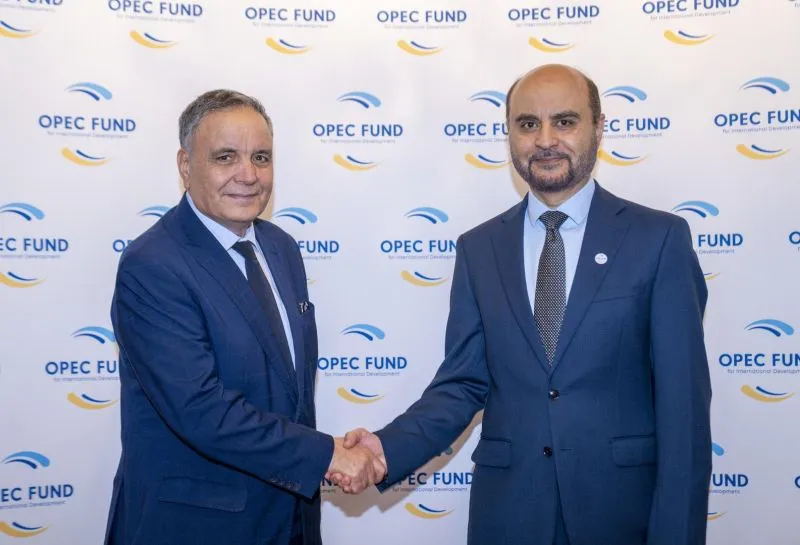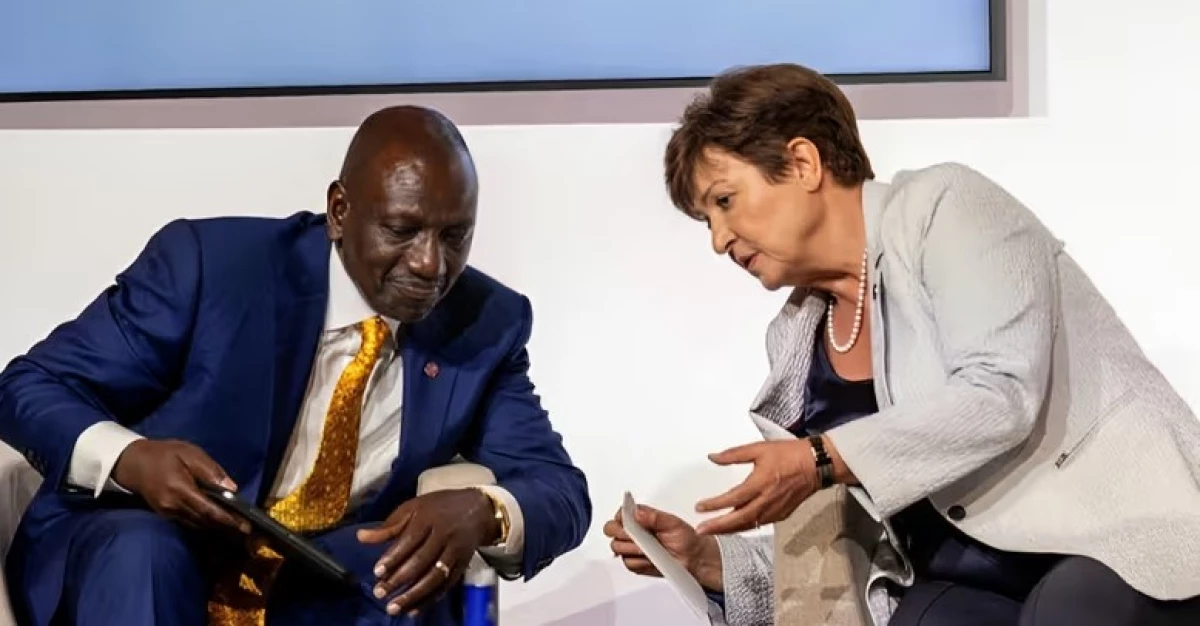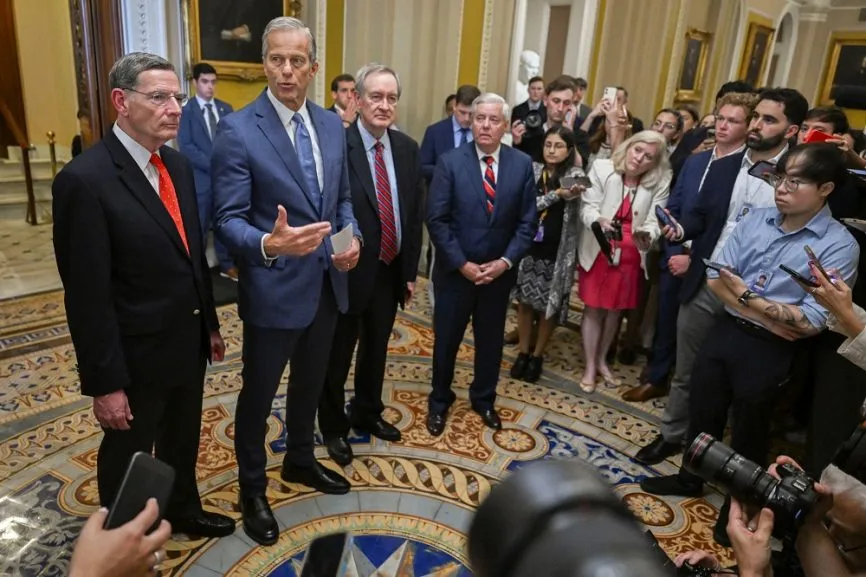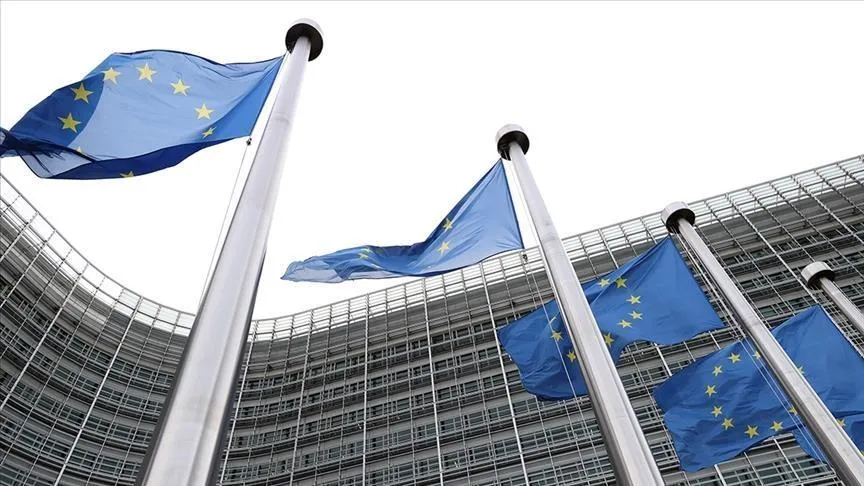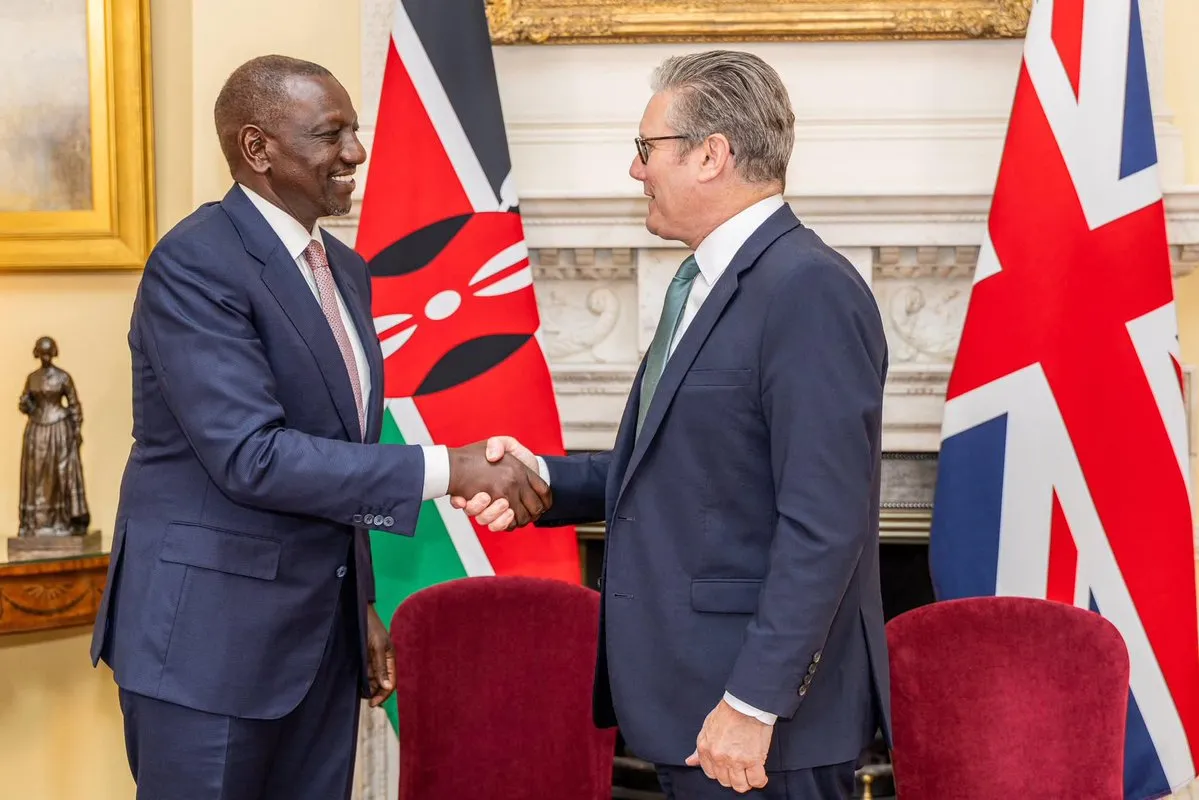The OPEC Fund for International Development (OPEC Fund) has approved over US$600 million in new financing for a diverse range of projects across Africa, Asia, Latin America, and the Caribbean. The announcement, made during the institution’s 191st Governing Board meeting in Vienna, signals an intensified commitment to boosting infrastructure, enhancing human capital, and promoting food security across partner countries.
The new financing package is set to fund initiatives that span public sector operations—from upgrading critical road corridors and strengthening electricity transmission networks to enhancing vocational training facilities—and private sector operations designed to expand access to finance and support emerging entrepreneurial ventures. This comprehensive approach not only responds to the immediate infrastructure and economic needs of partner countries but also lays the foundation for long-term resilience and growth.
A Strategic Investment in Sustainable Development
The OPEC Fund’s decision to commit such a substantial amount is part of a broader strategy to create inclusive growth in regions that are rapidly transforming. According to Abdulhamid Alkhalifa, President of the OPEC Fund, “These engagements are a significant demonstration of our commitment to building resilience and enabling inclusive development. From transport corridors to vocational training and financing small businesses, the OPEC Fund is supporting practical solutions that align with our partners’ priorities and deliver tangible results.”
The financing package reflects the Fund’s multifaceted strategy, addressing both supply-side constraints—such as underdeveloped infrastructure and limited access to education and training—and demand-side challenges, including the need for enhanced private sector capabilities. With infrastructure playing a pivotal role in connecting markets, these projects are designed to stimulate economic activity, create jobs, and reduce the economic vulnerabilities faced by many emerging economies.
Key Projects: Transforming Regions Through Infrastructure and Innovation
The newly approved projects are segmented into public and private sector operations, each targeting specific areas for improvement and growth.
Public Sector Operations
Costa Rica: Enhancing Trade and Connectivity
A €180 million loan will co-finance the “Expansion and Improvement of the San Jose – San Ramon Road Corridor Project” alongside the Central American Bank for Economic Integration (CABEI). This project is aimed at significantly improving traffic flow and road safety along Route 1 of the Inter-American Highway. By modernizing a key transport artery, the initiative is expected to not only enhance trade and logistics but also bolster regional economic integration. Improved road infrastructure is vital for businesses, as it reduces transit times, lowers transport costs, and encourages cross-border commerce.
Nepal: Strengthening Electricity Networks
In Nepal, a US$100 million loan will support the “South-Asia Subregional Economic Cooperation (SASEC) Electricity Transmission and Distribution Strengthening Project” in partnership with the Asian Development Bank (ADB). The initiative focuses on upgrading Nepal’s electricity grid to enhance reliability and efficiency. With power outages still posing a significant challenge in many parts of the country, the project is expected to facilitate better power distribution, promote cross-border power trade, and catalyze industrial growth. Reliable electricity is not only a basic necessity but also a cornerstone for attracting foreign investment and supporting the digital economy.
Rwanda: Elevating Aviation Skills and Infrastructure
Rwanda is set to receive a US$27.95 million loan for the “Center of Excellence in Aviation Skills Project,” in collaboration with the African Development Bank (AfDB). This project aims to raise the national standard of aviation training to international levels, positioning Rwanda as a potential regional hub for aviation. In an era where air travel is increasingly vital for economic connectivity, enhancing skills in the aviation sector is expected to have a multiplier effect—boosting tourism, improving logistics, and fostering a knowledge-based economy.
Senegal: Combating Climate Change Through Agriculture
Senegal’s agriculture sector, which is highly vulnerable to the impacts of climate change, will benefit from a €25 million loan dedicated to the “Water Valorization for Value Chains Development Project- Phase 2 (PROVALE – CV2)”. This project, implemented with support from AfDB and other partners, seeks to sustainably increase agricultural production while creating jobs and boosting incomes for 57,000 households. By promoting efficient water use and improving value chains, the initiative is poised to not only secure food supplies but also to mitigate the adverse effects of climate change on agricultural and livestock production.
Tanzania: Boosting Regional Trade Through Rail Connectivity
A significant US$75 million loan, marking the first tranche of a US$150 million facility, will go towards the “Regional Standard Gauge Railway Project (Uvinza–Malagarasi Section)” in Tanzania. Co-financed with AfDB and other partners, this project will enhance regional connectivity by improving the railway network. Enhanced rail connectivity is critical for stimulating trade between Tanzania, Burundi, and the Democratic Republic of the Congo, reducing transport costs and opening up new markets for local producers.
Private Sector Operations
Côte d’Ivoire: Empowering SMEs
A €30 million loan in Côte d’Ivoire is set to expand access to finance for small and medium-sized enterprises (SMEs). By strengthening entrepreneurship and supporting job creation, this initiative will help stimulate economic growth and foster a more vibrant business ecosystem. SMEs are often the backbone of emerging economies, and improved access to capital can drive innovation, create employment, and enhance competitiveness in both local and international markets.
Democratic Republic of the Congo: Catalyzing Critical Sectors
In the Democratic Republic of the Congo, a US$20 million loan, as part of a larger financing package, will be directed towards on-lending critical sectors of the economy. This initiative is expected to provide much-needed liquidity to vital industries, fostering innovation and spurring economic activity. By targeting key sectors, the financing package aims to create a ripple effect that benefits a wide range of stakeholders, from individual entrepreneurs to large industrial players.
Nicaragua: Promoting Financial Inclusion in Agriculture
Nicaragua will benefit from a US$20 million loan aimed at promoting financial inclusion within the agriculture sector. This funding is designed to facilitate access to credit for agricultural businesses, empowering farmers and small agribusinesses to invest in modern technologies and sustainable practices. Given the country’s reliance on agriculture for both employment and export revenues, improved financial access is expected to drive growth and enhance food security.
Africa Regional Initiative: Enhancing Agricultural Trade
In a move to bolster trade across the continent, a US$40 million participation in a US$240 million trade finance facility will finance the import and export of agricultural commodities across multiple African countries. This facility is a crucial step towards integrating fragmented markets and establishing robust supply chains for agricultural products. With improved trade finance, local producers can better access international markets, leading to increased export revenues and more resilient food systems.
The Broader Implications of OPEC Fund’s Commitment
Addressing Infrastructure Gaps and Promoting Connectivity
Infrastructure is widely regarded as the backbone of economic development. The OPEC Fund’s multifaceted approach to addressing infrastructure gaps is particularly noteworthy. By investing in critical road corridors, rail networks, and energy grids, the Fund is directly addressing the bottlenecks that hinder economic progress. Enhanced connectivity is expected to reduce transportation costs, facilitate the movement of goods and services, and enable greater economic integration across regions. In regions like Latin America and Africa, where infrastructure gaps have long been a barrier to growth, such investments are not merely about physical construction—they represent a strategic effort to unlock untapped economic potential.
Fostering Human Capital and Skill Development
A recurring theme across several projects is the emphasis on human capital development. In Rwanda, for instance, the establishment of a Center of Excellence in Aviation Skills is more than just an educational initiative; it is a long-term investment in the nation’s ability to participate in the global aviation industry. Similarly, projects in Nepal and Senegal focus on upgrading essential services—be it electricity or water usage in agriculture—that underpin human development and economic productivity. These investments in education and skill development are pivotal for nurturing a workforce that is capable of meeting the demands of an increasingly competitive global market.
Catalyzing Private Sector Growth and Financial Inclusion
The private sector projects in Côte d’Ivoire, the Democratic Republic of the Congo, and Nicaragua underscore the importance of financial inclusion and support for SMEs in driving sustainable economic growth. By expanding access to finance, these projects help reduce the financing gap that many entrepreneurs face. Small and medium-sized enterprises are crucial drivers of innovation and job creation; by enabling them to access the necessary capital, the OPEC Fund is effectively sowing the seeds for a more dynamic and resilient private sector.
Enhancing Food Security and Combating Climate Change
In a world where climate change poses an ever-growing threat to global food supplies, the investment in Senegal’s agricultural sector takes on added significance. The Water Valorization for Value Chains Development Project is designed not only to boost agricultural productivity but also to enhance the resilience of food systems against the impacts of climate change. By modernizing agricultural practices and promoting sustainable resource management, the project aims to secure food supplies for vulnerable populations while also supporting broader environmental goals.
Regional Integration and Cross-Border Trade
The emphasis on regional integration is a notable highlight of the financing package. Projects like the Standard Gauge Railway in Tanzania and the trade finance facility for African agricultural commodities are designed to break down the barriers that have long impeded cross-border trade. By fostering a more interconnected regional market, these projects are expected to drive economic diversification, reduce trade imbalances, and facilitate the spread of innovation and technology. In many ways, these initiatives represent a new model for regional cooperation—one that leverages infrastructure and finance to create shared prosperity.
A Human-Centered Approach: Stories Behind the Numbers
Behind each of these projects lies a human story—of communities striving for better livelihoods, of entrepreneurs with dreams of growth, and of nations eager to join the global economic arena. Take, for instance, the impact of the road corridor project in Costa Rica. For local communities, improved roads mean more than just smoother traffic; it means faster access to healthcare, education, and markets where local goods can be sold. Small business owners envision a future where logistical challenges no longer limit their potential, and families anticipate safer travel to and from work.
In Nepal, the efforts to upgrade the electricity grid have the potential to transform daily life. Reliable electricity isn’t just a technical upgrade—it’s a gateway to modern education, improved healthcare facilities, and enhanced digital connectivity. Rural communities, which have long struggled with power shortages, may soon witness a transformation in their quality of life, driven by consistent and efficient power supply.
Rwanda’s aviation skills center is equally transformative. By nurturing local talent in a high-skill sector, the initiative is poised to create a new generation of professionals who can not only meet international standards but also lead innovations in aviation technology. The ripple effects of such a project extend beyond the aviation industry, potentially spurring growth in related sectors such as tourism, logistics, and trade.
Similarly, the agricultural projects in Senegal and Nicaragua carry the promise of improved food security and sustainable growth. Farmers who previously faced unpredictable weather patterns and limited access to finance can now look forward to more stable incomes and the adoption of modern agricultural techniques. By addressing both the infrastructural and financial challenges inherent in agriculture, these projects are set to build more resilient rural economies.
The Global Economic Context: Why This Matters Now
The timing of these initiatives is critical. The global economy is currently navigating a complex landscape marked by rapid technological change, shifting geopolitical alliances, and the lingering effects of past economic disruptions. In many emerging markets, the need for robust infrastructure and resilient economic systems has never been greater. Investments such as these, which target both hard infrastructure and soft factors like education and finance, are essential to ensuring that these nations can compete in a rapidly evolving global market.
The focus on sustainability is also reflective of broader global trends. With climate change at the forefront of international discourse, projects that integrate environmental resilience into their core objectives are particularly timely. The emphasis on sustainable agriculture in Senegal and the focus on reducing energy inefficiencies in Nepal are examples of how economic growth and environmental stewardship can go hand in hand. This dual focus not only meets the immediate needs of economic development but also aligns with global commitments to environmental sustainability and climate change mitigation.
Furthermore, these projects underscore the importance of multilateral partnerships in addressing global challenges. The OPEC Fund’s collaborative approach—working with regional development banks like AfDB, ADB, and CABEI—highlights the value of coordinated efforts in achieving common goals. Such partnerships facilitate the pooling of expertise and resources, making it possible to tackle large-scale challenges that no single institution could address alone.
Looking Ahead: The Road to Resilience and Growth
As the OPEC Fund’s new financing commitments begin to take shape on the ground, several key themes emerge that will likely define the future of development in partner countries:
- Resilience Through Diversification: By investing in both physical and human capital, the projects aim to diversify economies and reduce reliance on a single sector or resource. This approach is critical in an era marked by rapid economic shifts and uncertainties.
- Empowering Local Communities: The emphasis on local engagement and capacity-building is designed to ensure that the benefits of these investments are widely distributed. From improved road safety in Costa Rica to enhanced electricity reliability in Nepal, these projects are expected to have transformative impacts on local communities.
- Sustainable Growth Models: Integrating environmental considerations into economic development is no longer optional—it’s a necessity. By promoting sustainable agricultural practices and efficient energy use, the OPEC Fund’s initiatives are paving the way for growth models that are both economically viable and environmentally sound.
- Strengthening Regional Ties: Enhanced connectivity through infrastructure projects like Tanzania’s rail network is set to boost regional trade and integration. As borders become more porous in terms of trade and cooperation, the overall stability and resilience of the region are expected to improve.
- Leveraging Innovation: In a world where technological advancements are reshaping industries, investments in education and skills development—such as Rwanda’s aviation center—are vital. By equipping local workforces with modern skills, these initiatives ensure that nations are prepared to meet the demands of a globalized economy.
Voices from the Field: Perspectives on Impact
Interviews with local stakeholders provide a human dimension to these investments. A transportation planner in Costa Rica shared his optimism about the road project: “Improving our road infrastructure isn’t just about reducing travel time; it’s about opening up new opportunities for local businesses and ensuring that our communities are connected to larger economic hubs.” Similarly, a small business owner in Côte d’Ivoire expressed hope that the increased access to finance would enable her to expand her operations and create jobs within her community.
In Nepal, residents living in remote areas have long struggled with unreliable electricity. The upcoming improvements are anticipated to not only ease daily inconveniences but also enable new business ventures that depend on consistent power supply. Meanwhile, in Senegal, local agricultural cooperatives are already discussing how the new water valorization project could revolutionize farming practices, offering hope for a future where climate resilience is built into the fabric of rural economies.
Conclusion: A Catalyst for Change
The OPEC Fund’s commitment of over US$600 million represents a landmark moment in the realm of international development. By targeting critical areas such as infrastructure, human capital, and financial inclusion, the Fund is not only addressing the immediate developmental challenges faced by partner countries but also laying the groundwork for a more resilient and inclusive future. These projects, spanning diverse geographies and sectors, underscore a broader vision: one where sustainable development is achieved through coordinated, strategic investments that empower communities, strengthen economies, and safeguard the environment.
As global economic dynamics continue to evolve, initiatives like these serve as a reminder that progress is possible when strategic vision meets practical action. The impact of these investments will be felt far beyond the immediate financial figures—they will ripple through communities, foster new opportunities for growth, and contribute to a more interconnected and resilient global economy.
In a world where uncertainty often looms large, the OPEC Fund’s new financing package offers a beacon of hope. It signals a future where economic development is not just about numbers on a balance sheet, but about real, tangible improvements in people’s lives. From the bustling streets of San Jose to the rural expanses of Nepal and the innovative hubs of Rwanda, this commitment to connectivity, skills development, and economic resilience is poised to transform landscapes and empower nations.
The coming years will be crucial in determining how these projects evolve and the extent to which they meet their ambitious goals. However, one thing is clear: by investing in the pillars of sustainable development—robust infrastructure, human capital, and financial inclusion—the OPEC Fund is setting the stage for a new era of growth, innovation, and shared prosperity. As these initiatives take root, stakeholders at all levels will be watching closely, hopeful that this strategic investment will indeed pave the way for a brighter, more resilient future for all.
Ready to take your career to the next level? Join our dynamic courses: ACCA, HESI A2, ATI TEAS 7 , HESI EXIT , NCLEX – RN and NCLEX – PN, Financial Literacy!🌟 Dive into a world of opportunities and empower yourself for success. Explore more at Serrari Ed and start your exciting journey today! ✨
Photo source: Google
By: Montel Kamau
Serrari Financial Analyst
7th April, 2025
Article, Financial and News Disclaimer
The Value of a Financial Advisor
While this article offers valuable insights, it is essential to recognize that personal finance can be highly complex and unique to each individual. A financial advisor provides professional expertise and personalized guidance to help you make well-informed decisions tailored to your specific circumstances and goals.
Beyond offering knowledge, a financial advisor serves as a trusted partner to help you stay disciplined, avoid common pitfalls, and remain focused on your long-term objectives. Their perspective and experience can complement your own efforts, enhancing your financial well-being and ensuring a more confident approach to managing your finances.
Disclaimer: This article is for informational purposes only and does not constitute financial advice. Readers are encouraged to consult a licensed financial advisor to obtain guidance specific to their financial situation.
Article and News Disclaimer
The information provided on www.serrarigroup.com is for general informational purposes only. While we strive to keep the information up to date and accurate, we make no representations or warranties of any kind, express or implied, about the completeness, accuracy, reliability, suitability, or availability with respect to the website or the information, products, services, or related graphics contained on the website for any purpose. Any reliance you place on such information is therefore strictly at your own risk.
www.serrarigroup.com is not responsible for any errors or omissions, or for the results obtained from the use of this information. All information on the website is provided on an as-is basis, with no guarantee of completeness, accuracy, timeliness, or of the results obtained from the use of this information, and without warranty of any kind, express or implied, including but not limited to warranties of performance, merchantability, and fitness for a particular purpose.
In no event will www.serrarigroup.com be liable to you or anyone else for any decision made or action taken in reliance on the information provided on the website or for any consequential, special, or similar damages, even if advised of the possibility of such damages.
The articles, news, and information presented on www.serrarigroup.com reflect the opinions of the respective authors and contributors and do not necessarily represent the views of the website or its management. Any views or opinions expressed are solely those of the individual authors and do not represent the website's views or opinions as a whole.
The content on www.serrarigroup.com may include links to external websites, which are provided for convenience and informational purposes only. We have no control over the nature, content, and availability of those sites. The inclusion of any links does not necessarily imply a recommendation or endorsement of the views expressed within them.
Every effort is made to keep the website up and running smoothly. However, www.serrarigroup.com takes no responsibility for, and will not be liable for, the website being temporarily unavailable due to technical issues beyond our control.
Please note that laws, regulations, and information can change rapidly, and we advise you to conduct further research and seek professional advice when necessary.
By using www.serrarigroup.com, you agree to this disclaimer and its terms. If you do not agree with this disclaimer, please do not use the website.
www.serrarigroup.com, reserves the right to update, modify, or remove any part of this disclaimer without prior notice. It is your responsibility to review this disclaimer periodically for changes.
Serrari Group 2025

